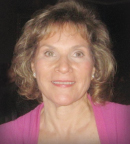The first sign that pancreatic cancer was stalking my family was in 1982, when my mother was diagnosed with stage IV disease. She was just 54 years old and died several months later. After two more family members in their early 50s were also diagnosed with the cancer, I began to worry that I would be among the small percentage of people—about 10%—with familial pancreatic cancer, putting me at greater risk of developing the disease.1

Shirlee Simpson
I started consulting with several physicians to see whether there was a screening option for me, but screening guidelines for healthy individuals with a family history of pancreatic cancer had not yet been developed, and there was no consensus at that time as to whether screening could be effective in detecting early pancreatic cancer. (Editor’s Note: The American Gastroenterology Association recommends that screening in high-risk individuals begin at age 50 or 10 years younger than the initial age of familial onset of disease. For individuals with genetic predispositions, screening should be started earlier.2)
To my absolute horror, in 2014, my sister, just 63 at the time, was diagnosed with stage IV pancreatic cancer. Chemotherapy, radiation therapy, and finally surgery held off progression of the disease for 24 months, but she died in 2016.
Now, I feared the cancer was coming for me and my children.
Taking Control
I heard about the Pancreatic Cancer Early Detection (PRECEDE) Consortium (https://precedestudy.org), an international, multi-institutional observational prospective study enrolling individuals with a family history of pancreatic cancer and/or individuals carrying pathogenic or likely pathogenic germline variants in genes linked to development of the cancer. The trial is investigating the understanding of pancreatic cancer risk, including the discovery of pancreatic cancer susceptibility genes, and aims to maximize the identification of high-risk individuals, develop early-detection tests and prevention strategies for the disease, and increase the 5-year survival rate from 10% to 50% within the next 10 years.
Determined to find help, I contacted Diane M. Simeone, MD, principal investigator and Executive Committee Chair of the PRECEDE Consortium; the Laura and Isaac Perlmutter Professor of Surgery and Pathology; Director, Pancreatic Cancer Center; and Associate Director, Perlmutter Cancer Center at New York University Langone Health. I was so afraid I was next in line to be diagnosed with pancreatic cancer, I began shaking during our first meeting.
Dr. Simeone looked at me and said, “Shirlee, I must tell you. This is not your problem anymore. Let me worry about it.” Immediately, I could feel the stress leaving my body. It was so comforting and reassuring to know that someone was watching over me and taking care of me.
I enrolled in PRECEDE and underwent genetic testing. I had magnetic resonance imaging (MRI) and endoscopic retrograde cholangiopancreatography (ERCP) on a rotating yearly basis as part of the study protocol to spot any early signs of cancer. My participation in the study made me feel more in control of my health. I was also glad to contribute to scientific knowledge about this fatal cancer, so others might benefit. In the process, I also felt I was honoring beloved family members lost to this disease.
Going for a Cure
About 4 years into the study with no signs of cancer, I began to relax. Maybe I had escaped my family’s genetic fate after all. However, in 2021, the results from a routine ERCP showed a 1.8-cm mass in my pancreas, which was later confirmed by an MRI and tissue biopsy. I underwent an ablative Whipple procedure, and the pathology report determined I had stage 1 pancreatic cancer.
Following the surgery, I had 6 months of an aggressive chemotherapy regimen, which likely eliminated any remaining malignant cells in my pancreas. I’ve been cancer-free for 2 years.
My greatest fear since my cancer diagnosis is that my children and their children will be burdened by this dread disease. Being enrolled in the PRECEDE study has eased that fear. My children, as well as several nieces, nephews, and cousins, have all enrolled in the study. I feel confident that even if they are diagnosed with this cancer, it will be at an early stage, allowing them to continue to have long, productive lives.
I have lived with the dread of pancreatic cancer for more than 40 years. It is a relief to know that science is finally allowing me and members of my family to let go of that fear. Today, I feel hopeful that in the future, more people will be diagnosed at an early, curable stage. I am optimistic that through information gleaned from the PRECEDE study, pancreatic cancer may become a more preventable disease in the future.
REFERENCES
1. Cancer.Net: Familial pancreatic cancer. Available at https://www.cancer.net/cancer-types/familial-pancreatic-cancer. Accessed on July 6, 2023.
2. Waleleng BJ, Adiwinata R, Wenas NT, et al: Screening of pancreatic cancer: Target population, optimal timing and now? Ann Med Surg (Lond) 84:104814, 2022.
Ms. Simpson lives in Merrick, Long Island, New York.
Editor’s Note: Columns in the Patient’s Corner are based solely on information The ASCO Post received from patients and should be considered anecdotal.

